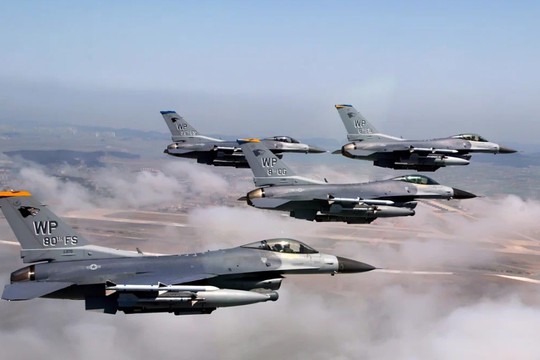F-16 for Ukraine – a tough question for US.
A big question around F-16s for Ukraine is what weapons the U.S. might allow them to carry. Russia has antiaircraft systems that might hit the planes, raising concerns in Washington that Ukrainian fighters would just get shot down. Working against Ukraine, in addition to weather, are potentially dwindling supplies of Western munitions and wear on equipment already donated, writes ‘The Wall Street Journal’.
When Kyiv’s counteroffensive began in spring, optimists hoped Ukrainian troops could replicate their success last year in routing Russian forces. But an initial attempt to use newly supplied Western tanks and armored vehicles to punch through fortified Russian lines stalled.
Since then, progress has been slow and painful, relying on small-unit tactics. A renewed push could still be in the offing. But military leaders and policy makers already are grappling with the question of what can be achieved in the next few months and how to prepare for a protracted conflict.
A nagging concern in Kyiv and Western capitals is that politicians and voters may come to see the war as a quagmire and sour on supporting Ukraine. Even if Kyiv’s Western backers stay resolute, clocks are ticking as Ukrainian forces burn through munitions, manpower and stamina for a grueling fight.
All military campaigns end at some point — even in wars that grind on for years — at what tacticians call a culmination, or the point when advancing forces can go no further due to success, impediments or lack of supplies.
Kyiv’s goal now is for its current offensive to culminate with sufficient gains to show Ukrainian citizens and backers in Washington, Berlin and elsewhere that their support hasn’t been misplaced — and should continue.
Senior military leaders, meanwhile, have for months warned that Ukraine’s relatively quick gains of last year wouldn’t easily be repeated. U.S. Army Gen. Mark Milley, chairman of the Joint Chiefs of Staff, has repeatedly poured cold water on suggestions that Kyiv could quickly slice through a land corridor Russia holds along Ukraine’s southeast or isolate the Crimean Peninsula, which Russia seized from Ukraine in 2014.
Similar caution is now more widespread in the White House, said Ivo Daalder, who was former President Barack Obama’s ambassador to NATO. “I do think there’s a realization in the administration that Ukraine’s not going to be regaining all its territory any time soon,” Daalder said.
U.S. and other Western officials have hoped that a significant Ukrainian breakthrough could bruise Russian forces enough to bring President Vladimir Putin to a negotiating table as soon as this winter for serious talks about some kind of settlement. Chances of that happening now appear slim, diplomats say.
Instead, Russia is reinforcing its physical defenses in Ukraine, adding more soldiers and ramping up production of ammunition and weaponry. The West is also cranking up military industries, raising the prospect of a protracted war of attrition.
But even if there is no breakthrough this summer, Ukraine can keep fighting well into winter. Rain and snow might slow operations of heavy equipment such as tanks.
Ukraine’s initial attempts to use European tanks and U.S. troop carriers in the offensive didn’t fare well, but by next spring Kyiv will have both more Western equipment and more skilled operators of the gear.
By the middle of next year, Ukraine might also be flying U.S.-made F-16 jet fighters, which European operators of the plane, including Denmark and the Netherlands, are eager to donate. Pressure is mounting on Washington to provide ATACMS long-range ground-launched rockets and on Germany to offer Taurus cruise missiles.
. Cannons and gun barrels can sustain only a finite number of firings before cracking or breaking, and heavy military vehicles require extensive maintenance—even if they’re never in combat.
Russia also continues to reinforce its defenses in Ukraine, including by putting new land mines.
Strategists looking to next year and beyond hope that over time — even as Russia reinforces impediments to Ukrainian assaults — Ukrainian troops can acquire skills and experience that allow them to outmaneuver and outsmart Russian forces.
How politicians will view the war next year remains a widespread concern, especially because of the U.S. presidential election next November. Former President Donald Trump, the Republican front-runner, has suggested he would curtail support to Ukraine. But many other Republicans continue to endorse U.S. help for Kyiv, including a large number of senators and many in the House, although some support tighter scrutiny of U.S. aid.
Concern that such support might fade if Trump were to regain the White House increases pressure on Ukraine and its supporters to deliver significant gains in the next campaign season if they aren’t possible this year, WSJ stresses.
read more in our Telegram-channel https://t.me/The_International_Affairs

 10:53 17.08.2023 •
10:53 17.08.2023 •























